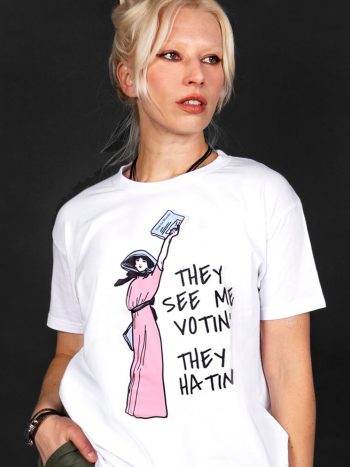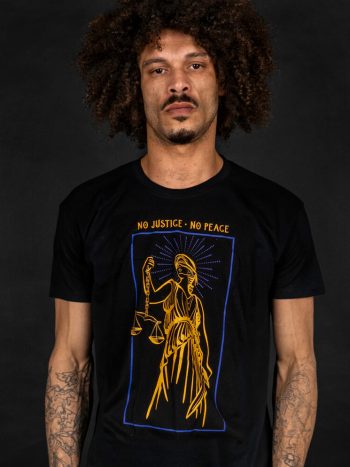Feminism, as an ideology and movement, has undergone significant evolution over the years. From its inception, it aimed to challenge and dismantle gender-based discrimination and advocate for women’s rights. However, as society’s understanding of various forms of oppression expanded, feminism too evolved to embrace a more inclusive and comprehensive approach known as intersectionality.

Intersectional feminism recognises that gender intersects with other aspects of identity, such as race, class, sexual orientation, and disability, creating unique and overlapping experiences of discrimination. This article explores why feminism is inherently intersectional and why this perspective is crucial in addressing the complex challenges faced by individuals of diverse backgrounds.
Understanding Intersectionality
Intersectionality was coined by legal scholar Kimberlé Crenshaw in the late 1980s, as a framework to analyse the experiences of Black women who faced compounded discrimination due to both their race and gender.
Intersectionality acknowledges that systems of oppression do not operate independently but intersect, shaping individuals’ identities and experiences. It recognises that gender inequality cannot be adequately addressed without considering how it intersects with other forms of discrimination, such as racism, ableism, classism, and more.
The Interconnected Struggles

Intersectionality highlights that gender inequality affects women differently depending on their other intersecting identities. For example, a white woman may face gender discrimination, but she also benefits from white privilege.
On the other hand, a woman of colour may face both gender and racial discrimination, leading to unique challenges. By embracing intersectionality, feminism acknowledges these differing experiences and strives to address the specific barriers faced by marginalised women.
It recognises that the fight for gender equality must encompass all women, irrespective of their race, ethnicity, socioeconomic status, sexual orientation, or ability.
Tackling Systems of Oppression

An intersectional feminist approach recognises that oppression is not limited to individual actions but deeply rooted in societal systems and structures.
By analysing how different systems of oppression intersect, feminism becomes better equipped to challenge and dismantle them. For instance, recognising the intersection between gender and race enables feminists to address the specific experiences of women of colour, who often face both racism and sexism simultaneously.
By doing so, intersectional feminism seeks to create a more inclusive and just society for all individuals.
Listening to Diverse Voices
Intersectionality in feminism emphasises the importance of diverse perspectives and voices. It encourages the inclusion and amplification of marginalised voices and experiences, allowing for a more comprehensive understanding of gender inequality.
By centering the experiences of women from different backgrounds, intersectional feminism avoids essentialism and recognises the diverse struggles and aspirations within the feminist movement.
This inclusive approach not only enriches feminist discourse but also helps create effective strategies to challenge all forms of discrimination.
Trans Rights Do Not Negate Feminism
it is important to acknowledge that within the feminist movement, there are instances where certain voices have been exclusionary towards transgender individuals.
Some feminists have shunned or marginalised trans people, arguing that their inclusion undermines the focus on cisgender women’s experiences. Such actions and beliefs contradict the core principle of feminism, which is equality for all.
Excluding trans individuals from the feminist movement perpetuates discrimination and denies them the support they need to fight against gender-based oppression. Embracing intersectionality requires feminists to acknowledge and challenge this exclusionary behaviour, recognising that all individuals, regardless of their gender identity, deserve equality and respect.
By actively working to dismantle transphobia within feminist spaces, we can create a more inclusive movement that truly embraces the foundational values of feminism: equality, justice, and liberation for all genders.
Moving Forward
Feminism has evolved beyond a narrow focus on gender alone. Intersectionality has become an integral part of feminism, enhancing its ability to address the complex realities of individuals facing multiple forms of oppression.
By embracing intersectionality, feminism can better understand and challenge the interconnected nature of discrimination, working towards a more equitable society for all.
Intersectionality is not an optional add-on to feminism; it is fundamental to its core. Recognising that gender inequality intersects with other forms of oppression, intersectional feminism offers a more comprehensive and inclusive approach to fighting for equality.
By acknowledging the unique challenges faced by individuals with multiple marginalised identities, feminism can better address the systemic roots of discrimination.
Embracing intersectionality ensures that feminism remains relevant, vibrant, and responsive to the diverse needs and experiences of all women. Only by working together can we build a society that upholds the principles of equality, justice, and inclusivity for everyone.















